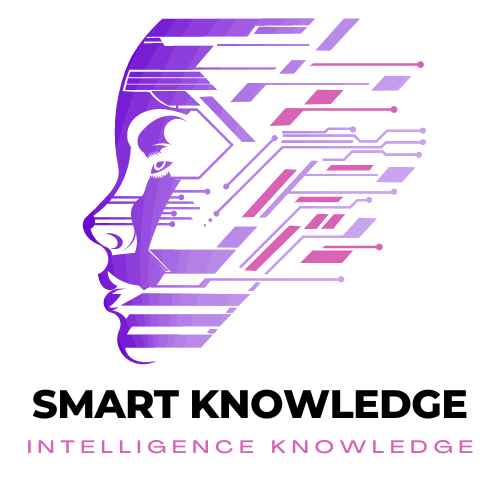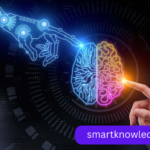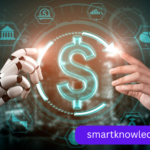Artificial Intelligence (AI) is rapidly becoming an integral part of modern businesses, transforming how they operate and grow. From streamlining daily operations to enhancing customer experiences, AI helps companies improve efficiency, reduce costs, and scale faster. In this blog, we will explore how AI is driving innovation and improving business efficiency across various sectors, and how businesses can leverage AI technologies to stay competitive in an increasingly digital landscape.
1. AI in Operations: Streamlining Processes for Efficiency
One of the most significant impacts AI has on businesses is in operational efficiency. AI-powered systems help automate routine tasks, allowing employees to focus on more critical work.
- Automation of Repetitive Tasks: Tasks such as data entry, invoicing, and inventory management can be time-consuming. AI-powered tools help automate these functions, reducing the time and effort required to complete them. This results in faster workflows, fewer errors, and more efficient operations.
- Predictive Maintenance in Manufacturing: In industries like manufacturing, AI plays a vital role in equipment maintenance. Predictive maintenance algorithms analyze data from machines to detect potential failures before they occur. This reduces downtime and maintenance costs, ensuring continuous production.
- Supply Chain Optimization: AI-driven supply chain management systems can predict demand, optimize inventory levels, and minimize delivery delays. These AI tools use historical data, market trends, and real-time information to make more accurate forecasts, ensuring that businesses can meet customer demands without overstocking.
2. AI in Decision-Making: Data-Driven Insights for Smarter Choices
Businesses are increasingly relying on data-driven decision-making, and AI is helping them analyze large volumes of data more efficiently.
- Advanced Analytics and Insights: AI can process and analyze vast amounts of data in real-time, providing businesses with actionable insights. These insights help leaders make informed decisions, whether it’s understanding customer behavior, optimizing marketing campaigns, or improving product development.
- Forecasting and Trend Analysis: AI-driven analytics tools can forecast market trends and consumer preferences, allowing businesses to anticipate changes in demand and adjust their strategies accordingly. For instance, AI can analyze sales data and predict future demand for specific products, helping businesses optimize their inventory.
- Personalized Business Strategies: AI helps businesses personalize their marketing strategies by analyzing customer data. AI algorithms can recommend tailored promotions, suggest products, and even predict customer churn, enabling businesses to improve customer retention and satisfaction.
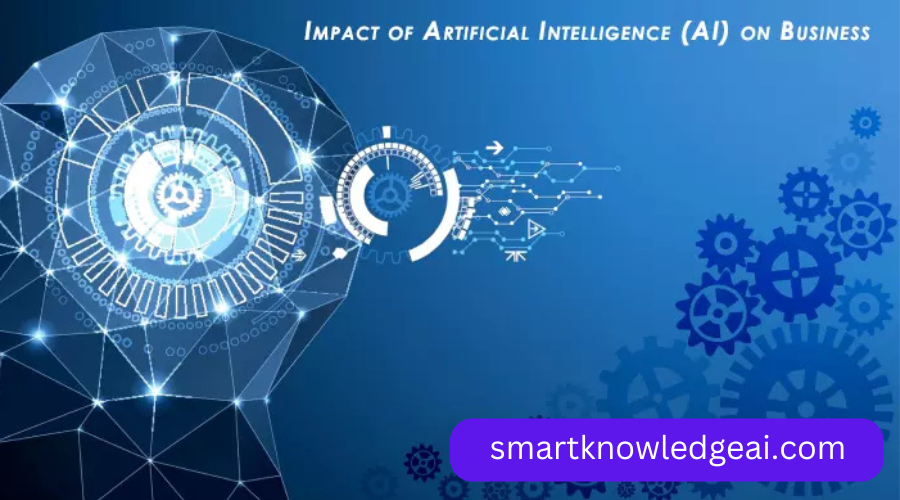
3. AI in Customer Service: Enhancing the Customer Experience
AI is revolutionizing customer service by providing businesses with new tools to enhance the customer experience. From chatbots to personalized recommendations, AI is reshaping how businesses interact with customers.
- AI Chatbots for 24/7 Support: AI-powered chatbots provide customers with real-time support, answering common questions and resolving issues around the clock. These chatbots can handle routine tasks such as checking account balances, tracking orders, or booking appointments, allowing human agents to focus on more complex queries.
- Personalized Customer Experiences: AI-driven recommendation engines help businesses personalize their offerings to individual customers. For example, e-commerce platforms use AI to suggest products based on a customer’s browsing history, past purchases, and preferences, improving the likelihood of conversions and enhancing customer satisfaction.
- Sentiment Analysis: AI tools can analyze customer reviews, social media posts, and other forms of feedback to understand customer sentiment. This allows businesses to gauge how customers feel about their products or services and adjust their strategies accordingly.
4. AI in Marketing: Optimizing Campaigns for Better Results
AI is transforming the marketing landscape by helping businesses optimize their campaigns for better results. AI-powered marketing tools allow businesses to target the right audience, improve engagement, and maximize ROI.
- AI-Driven Content Creation: AI can assist in content creation by generating blog posts, social media content, and even email marketing campaigns. AI tools like GPT-3 can create human-like text based on input from marketers, speeding up the content creation process and ensuring that it aligns with the brand’s tone and message.
- Audience Segmentation and Targeting: AI tools can analyze customer data to segment audiences based on their preferences, behaviors, and demographics. This allows businesses to deliver personalized messages to specific customer groups, improving engagement and conversions.
- Programmatic Advertising: AI is used in programmatic advertising to automate the buying and placement of ads. By analyzing real-time data, AI can identify the best ad placements and bid on them automatically, ensuring that businesses get the most value for their advertising budgets.
5. AI in Human Resources: Enhancing Recruitment and Employee Management
AI is also making waves in human resources by helping businesses streamline recruitment processes and improve employee management.
- Automated Resume Screening: AI-powered recruitment tools can automate the process of screening resumes, identifying the best candidates based on predefined criteria. This saves time for HR professionals and ensures that only the most qualified candidates move forward in the hiring process.
- Employee Performance Tracking: AI tools can help monitor employee performance by analyzing productivity data, project completion times, and even employee sentiment. This allows managers to provide real-time feedback and support to employees, helping improve performance and job satisfaction.
- Workforce Planning: AI can assist in workforce planning by predicting future staffing needs based on business growth, market trends, and employee turnover rates. This ensures that businesses have the right number of employees in the right roles to meet their goals.
6. AI in Product Development: Driving Innovation
AI is driving innovation in product development by helping businesses create smarter, more efficient products.
- AI-Powered Product Design: AI tools can assist in product design by analyzing user feedback, market trends, and competitor products. AI can suggest design improvements, predict which features will be popular with customers, and even identify potential manufacturing issues before production begins.
- Prototyping and Testing: AI can speed up the prototyping and testing phase of product development by simulating different scenarios and predicting how a product will perform. This reduces the time and cost of bringing a product to market, allowing businesses to innovate faster.
- AI in Product Customization: AI-powered tools can help businesses offer personalized products to customers. For example, companies in the fashion industry use AI to create custom designs based on individual preferences, while manufacturers use AI to offer tailored solutions to clients in need of specialized products.
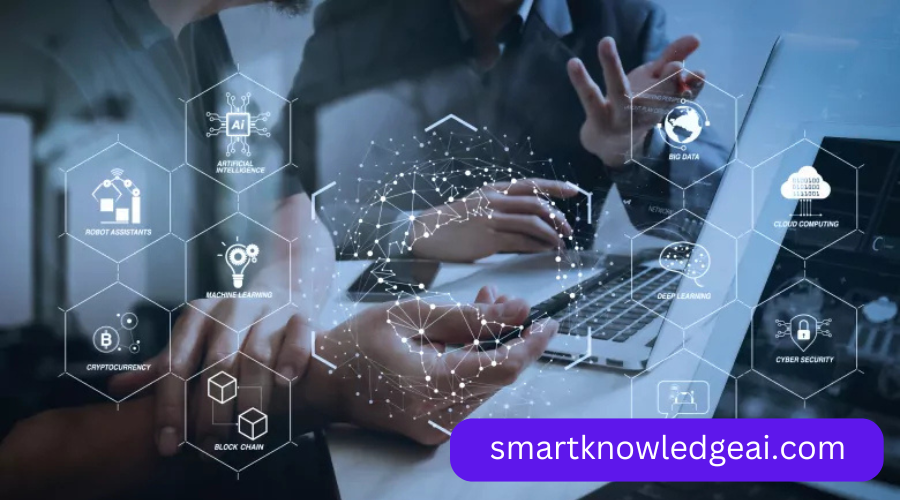
7. AI in Cybersecurity: Protecting Businesses from Threats
As businesses become more reliant on digital technologies, cybersecurity is a growing concern. AI is playing a critical role in helping businesses protect themselves from cyber threats.
- AI-Powered Threat Detection: AI can monitor network traffic and detect suspicious activity in real-time. By analyzing patterns of behavior, AI systems can identify potential cyber threats before they become a problem, allowing businesses to respond quickly to prevent data breaches.
- Automated Incident Response: When a security breach occurs, AI can help automate the incident response process. AI tools can isolate affected systems, block malicious IP addresses, and even notify security teams of the breach, minimizing the damage caused by cyberattacks.
- Fraud Detection and Prevention: In industries like finance, AI is used to detect fraudulent activities by analyzing transaction patterns. AI-powered fraud detection systems can identify anomalies in transactions, flagging potential fraud and preventing financial losses for businesses.
8. Ethical Considerations in AI for Business
While AI offers many benefits to businesses, it also raises ethical considerations that must be addressed.
- Data Privacy and Security: Businesses must ensure that they handle customer data responsibly and comply with privacy regulations. AI systems rely on vast amounts of data, so it’s crucial to protect this data from breaches and misuse.
- Bias in AI Algorithms: AI algorithms can sometimes perpetuate biases, particularly in areas like recruitment or lending. Businesses need to ensure that their AI systems are transparent and fair, and regularly audit them to eliminate bias.
- Job Displacement: AI automation may lead to job displacement in certain industries. While AI can increase efficiency, businesses must also consider the impact on their workforce and provide opportunities for reskilling and upskilling employees.
Conclusion
AI is transforming businesses across industries by improving operational efficiency, enhancing decision-making, and driving innovation. From streamlining processes to personalizing customer experiences, AI is helping companies stay competitive in today’s fast-paced, digital world. However, businesses must also be mindful of the ethical implications of AI, ensuring that they handle data responsibly, avoid algorithmic bias, and address the impact of AI on their workforce. The future of business is undoubtedly AI-driven, and companies that embrace this technology will be well-positioned for success.
